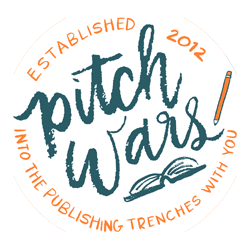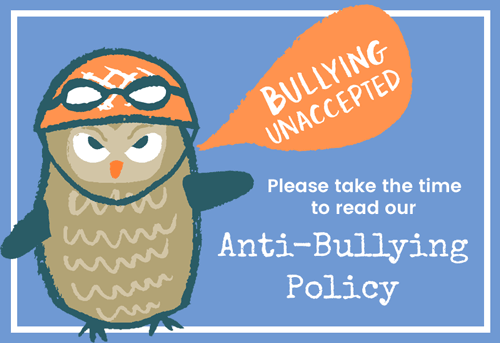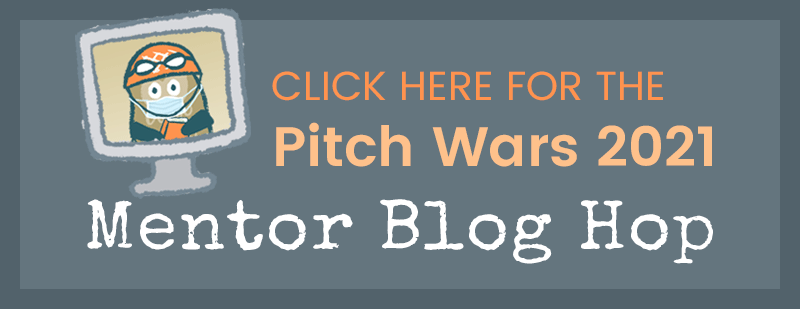
Welcome to our Query and 1st Page Workshop with some of our amazing Pitch Wars mentors. From a Rafflecopter lottery drawing, we selected writers to participate in our query and first page workshops. Each mentor has graciously critiqued a query or 500 word opening from our lucky winners. We’ll be posting four critiques per day (except weekends) through July 7. Our hope is that these samples will help shine up your query and first page and that you’ll get to know some of our wonderful Pitch Wars mentors. We appreciate our mentors for giving up their time to do the critiques. If you have something encouraging to add, feel free to comment below. Please keep all comments tasteful. We will delete any inappropriate or hurtful ones.
First up we have …
Pitch Wars Mentor Niki Lenz . . .
Niki Lenz lives in Kansas City with her police officer husband and two elementary aged children. She attended Southwest Baptist University and has worked as a teacher, a wedding planner, and a stay at home mom. In her spare time she enjoys reading, travel and renovating campers. She writes wacky MG and is represented by Kate Testerman at KT Literary.
Niki’s Query Critique . . .
AGE CATEGORY: Middle Grade
GENRE: Fantasy
Reformed pirates, a sassy parrot, bewitched children, and a dragon come together in The Abode to reverse a spell that’s turned a valley of dragons into a house of captive children. [I think this hook is a bit long. You want it to be short and snappy. The part about the valley of dragons being turned into a house of captive children is the heart of it, so I’d suggest reworking that for a first line.]
The Abode is a cold, unwelcoming place surrounded by mists, where Molly and other children spend their days cutting up fish. [Perfectly dreary!] As deeply as Molly wishes for a different life, this rule of the Abode stops her: Do Not Step Into the Mists Alone. You Will Die. [I’d cut ‘You Will Die’ as it is strongly implied] Molly’s friend Fel, defeated by a long punishment, plunges into the mists one day and vanishes. Molly grieves for her friend. [I’d also cut ‘Molly grieves for her friend, as it is also implied.]
The first crack in Molly’s world appears when Fel walks back out of the mists, alive. The mists have not harmed Fel. Instead they’ve carried her to the wide world and helped her return to rescue Molly [Maybe combine the last two sentences so it reads “The mists have carried Fel to the wide world and helped her return to rescue Molly”]. Fel brings a magical orb with her. When Molly holds the orb in her hand, it whispers to her: You bear the mark, young one. Watch and learn, and you will find your true self.
Molly and Fel plan an escape but, as they’re about to leave, the mists tell Molly she must stay behind to fulfill her destiny. Molly must jump down the hole where fish guts get dumped. [Try combining the two previous sentences so it reads, “Molly and Fel plan an escape but as they are about to leave, Molly obeys the mists and jumps down the hole where the fish guts get dumped.”] At the bottom she meets a dragon. He tells Molly that the Abode’s children have been tricked into forgetting their past. [Again, I’d combine the two previous sentences so that it reads, “At the bottom she meets a dragon who tells Molly that the abode’s children have been tricked into forgetting their past.”] Molly’s destiny, the dragon tells her, is to vanquish the one who has cast this spell. [I’d cut “the dragon tells her,] If she succeeds, she can return the children to their former lives—as dragons. If Molly fails, she and Fel will die for their defiance, and the freedom of the Abode’s children will never be realized. [Great stakes, well stated!]
My stories for children have appeared in Highlights for Children, Stories for Children Magazine, and Odyssey magazine. I am a member of SCBWI.
Overall, I think this is a very strong query. It gives me a good idea of what the story is about and what is at stake, and it makes me want to read! I think there are several places you can cut to make it shorter and to tighten up the writing, particularly the hook in the first paragraph.
Next up we have …
Pitch Wars Mentor Emily Colin . . .
![]()
Emily Colin’s debut novel, The Memory Thief, has been a New York Times bestseller and a Target Emerging Authors Pick. Her diverse life experience includes organizing a Coney Island tattoo and piercing show, hauling fish at the Dolphin Research Center in the Florida Keys, roaming New York City as an itinerant teenage violinist, helping launch two small publishing companies, and serving as the associate director of DREAMS of Wilmington, a nonprofit dedicated to immersing youth in need in the arts. Originally from Brooklyn, she lives in Wilmington, NC with her family.
THE MEMORY THIEF by Emily Colin . . .
A Ballantine Books Trade Paperback Original
New York Times bestseller
Target Emerging Authors Pick
Before Madeleine Kimble’s mountaineer husband, Aidan, climbs Mount McKinley’s south face, he makes her a solemn vow: I will come back to you. But late one night, Maddie gets the devastating news that Aidan has died in an avalanche, leaving her to care for their son-a small boy with a very big secret. The call comes from J.C., Aidan’s best friend and fellow climber, whose grief is seasoned with survivor’s guilt . . . and something more. J.C. has loved Maddie for years, but he never wanted his chance with her to come at so terrible a cost.
Across the country, Nicholas Sullivan wakes from a motorcycle crash with his memory wiped clean. Yet his dreams are haunted by visions of a mysterious woman and a young boy, neither of whom he has ever met. Convinced that these strangers hold the answers he seeks, Nicholas leaves everything behind to find them. What he discovers will require a leap of faith that will change all of their lives forever.
Amazon | B&N | IndieBound
Emily’s First Page Critique . . .
AGE CATEGORY: Adult
GENRE: Fiction
The children and their parents waited in front of the tall iron gates underneath a heavy sky. Shivering and damp, they shifted from foot to foot, hands deep inside thin pockets, and kept their eyes on the bars. They were bereft and without words. [You don’t need this sentence—no need to tell the reader so directly how the children & parents feel or how they’re acting. You show this to us through their actions—if you want, you can add ‘silent’ to the beginning of the previous sentence, as in ‘Shivering, damp and silent…’] The gulls cried out, carrying their song across the barren land outside of [you don’t need ‘of’ here] the walls. [I like this sentence—it’s as if the birds are giving voice to your characters’ misery, crying out where the children and parents cannot.]
The parents traced the curve of their children’s necks and measured their small shoulders before smoothing back their hair, trying in vain to burn it all into memory: the long strands, the chocolate curls, the tangles and knots, and the way the wind whipped across their forehead[s] that day. [The image of wind whipping across someone’s forehead is a little strange to me.] Then they leaned over and whispered something, letting their lips touch their children’s head[s] for just a moment. Though each made a promise to always remember everything about their child, they wouldn’t and they knew this. [Why not? Because their memories are going to be taken from them, or through the natural order of things? If it’s the latter, I might be a little less dramatic. If it’s the former, maybe give us a bit of foreshadowing, a hint, so we know that they’re going to be robbed of their memories.]
When they rose and locked eyes with one another, they saw it: their lives stretched out and childless [can they never have more children? Are these their only children? If they will only lose this one child, maybe make the loss more specific, to help clarify], endlessly searching [try to avoid adverbs if you can; find a single word that means ‘endlessly searching’] for the words they refused to say. [To their children? To each other? Right now? In the future? Specificity would help the reader understand more here.] Because even if they said I will remember you, your eyes, your forehead, your chin, your wet cheeks, your screams—I will remember and I will find you [I think utilizing italics would be effective]—even if they said those words, what would it have changed?
In previous years, this day would have been a celebration—the day of their birth [a little confusing here because ‘they’ in the previous paragraph refers to the parents; perhaps rephrase] —but today, on the first day of the fifth year of their life, the children hid behind the legs of their parents, finding comfort but not safety as they waited for admittance to their zone. [I like the idea of finding comfort but not safety; nice distinction.] Most children were nervously [adverb] excited for the education and training that awaited them and could not understand their parents, who wept openly [adverb] and without abash. [A couple things here. How do we know that the children are ‘nervously excited’? Can you show us through their body language or speech? Also, why are they hiding, seeking comfort, if they’re excited? Are they simply reacting to their parents’ fear? If so, maybe show them behaving in a conflicted manner—pulling away from their parents, craning their heads to see wherever they’re going, but still afraid, the way children being separated from their families would likely be. On a final note, I’ve never heard ‘without abash’ before…only ‘unabashedly.’ I don’t think you need both descriptions (‘openly and without abash’). We know that their parents are upset…show them weeping rather than describing it.] If any of them had looked closely at the enforcers [what enforcers? Where are they?], they would’ve noticed that their [first ‘they’ is children, second is enforcers; clarify] weaponry was pointed at those who let their tears fall, at those who wailed, at those who thought five years was better than two. [I don’t understand this last part. If the children used to be taken at age 2 and now they are taken at age 5, wouldn’t the parents be happy to have more time with them? And if that’s the case, why would they be more likely to wail?] The parents had known this day was coming, but they hadn’t known that with each moment spent with their child their love would unfurl until it was like peat [I’m not sure how I feel about the image of something unfurling until it’s like peat. I get that peat is enduring, but it would be great if you could find an image that worked in both senses: something that actually does unfurl, and then in its final form, meets your requirements for the parents’ love], layered and capable of enduring the earth for thousands of years to protect what laid beneath.
The gates, like the towers and the walls, were white and freshly painted, glistening from the heavy mist in the air. [If there’s heavy mist, how can they see that the gates, towers and walls are white and freshly painted?] The smell of salt tumbled [not sure about this word. Either fantastic (though unusual) word choice or out of place. Think about it a bit more] toward the crowd and the gulls circled high, black dots against the muted sky.
The strong gusts that came from the west barreled [nice word choice] into their ears, but those who stood in the back of the crowd heard a murmur from the front. Everyone stood a little taller, craning their necks to see over the heads of others.
When the mother provider finally appeared inside of [you don’t need ‘of’ here] the gates, the parents grasped their children’s hands tightly [adverb], squeezing them until the children looked up. Though the parents wanted to hold them [the children? The hands?], to fold them, [unconscious echo here of The Gambler song: ‘You’ve got to know when to hold ‘em, know when to fold ‘em … would choose a different word for one of these. Also the notion of folded children is a little disturbing to me] to push them back inside of them [two ‘thems’ confusing here], they loosened their grip.
Thank you for the opportunity to read the first page of your manuscript. The emotions you’re evoking here—of parents being separated from their children against their will, and children going half-unaware, half-excited to a dangerous fate—are strong ones, and your first page does a good job of inducing curiosity in the reader: Where, indeed, are these children going? Who are the enforcers and the mother provider? What will happen to the children once they disappear inside the gates?
I gave specific comments on the writing itself above, and so won’t get into that any more here—but I did want to address the issue of theme. This excerpt puts me in mind of other books, especially those that are post-apocalyptic in nature, that deal with these same issues . . . the forcible taking of children, the idea of a substitute mother figure who is part of a regime, the concept of children being forced into zones where they await an unknown fate. Without seeing the rest of the manuscript or a plot summary, I have no way of knowing whether you’ve given this trope a completely original spin—but if so, I would encourage you to make that clear from the very beginning, in order to help the manuscript stand out from the crowd.
You might also consider making the beginning more specific—that is, showing us the scene through the eyes of a specific character or set of characters in order to establish a stronger emotional connection (think about the beginning of The Hunger Games, and the emotional tie we’ve formed with Katniss and Prim before the reaping even takes place. We care so deeply about the fact that Prim’s name is called because we’ve already come to love her, through Katniss). Is your protagonist present in front of those iron gates, huddled in the crowd? I’m guessing that they probably are. Introduce us. Make this separation about the cleaving of a particular child from a particular parent. This will go a long way toward drawing the reader into the story and helping us care about what happens next.
Thanks so much for sharing your MS with me, and best of luck! I look forward to discovering what awaits the children behind those imposing iron gates, shrouded in mist…
Thank you, Niki and Emily, for your critiques!
Interested in more critiques? We’ll be posting critiques through the first part of July. Hope you’ll read on. And get ready! The Pitch Wars Mentor Wishlist Blog Hop starts July 19 with the Pitch Wars submission window opening on August 2nd.

 Twitter
Twitter






Nice Artice Wrote .Congra’s
Website Designing Services
These Are Really Help fule tips for beginners.